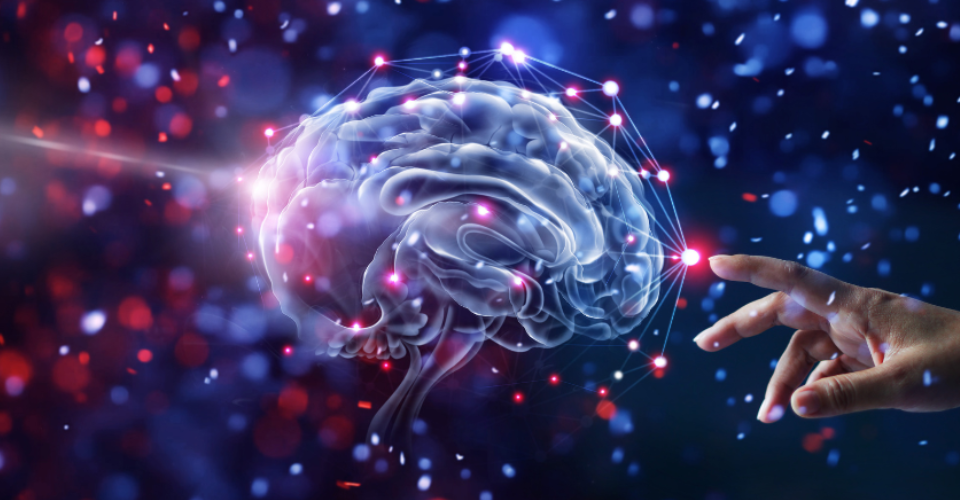Impulsivity and Emotional Processing Disruptions Associated with Increased Connectivity
According to a recent publication in the Journal of Psychiatric Research, men suffering from cocaine use disorder exhibit some significant disruptions in brain connectivity. Nonetheless, they have increased and more enduring brain connectivity especially within default mode network (DMN), cognitive control network (CCN) and sensorimotor network (SMN). Such heightened connectivity indicates a greater impulsivity and borderline personality traits resulting in difficulties in self-regulation and emotional processing.
Understanding Cocaine Use Disorder
Cocaine use disorder is a global issue that has severe health as well as societal consequences. This condition is prevalent but there are few successful treatment methods as it is not well comprehended neurologically.
Previous research on static brain connectivity does not hold true for this study. The objective of this study was to analyze dynamic patterns of brain connectivity over time among cocaine dependent individuals. By identification of these patterns, it would be possible for researchers to discover particular neural mechanisms which could help in enhancing the available treatments or interventions for such difficult states.
Methodology and Participants
The researchers utilized data from patients diagnosed with cocaine use disorder collected by SUDMEX CONN dataset through resting-state functional magnetic resonance imaging (rs-fMRI) scans. The final sample consisted of 69 right-handed males: 38 with cocaine use disorder and 31 healthy controls. The selection criteria for participants with cocaine use disorder were strict; recent and regular cocaine usage making them differentiable from recreational users.
Advanced Techniques Yielding Accurate Measurements
To handle MRI data, the scientists applied advanced techniques to enhance measurement quality as well as accuracy. Functional connectivity was analyzed using group spatial independent component analysis (ICA), which provided separate networks within the brain. Changes on functional connectivities over time were captured using a sliding window technique. This method allowed for the detection of distinct connectivity states during the scanning period.
Key Findings: Strongly-Connected vs. Weakly-Connected States
The study identified two main connectivity states – a strongly-connected state, and a weakly-connected state; in which individuals with cocaine use disorder exhibited more common stronger duration of connectedness than those without any abnormality. In this state, there was an increased connectivity within as well as between various brain networks such as DMN (default mode network), CCN (cognitive control network) and SMN (sensorimotor network).
Disruptions in Self-Referential Thinking and Emotion Regulation
Abnormal levels of connectivity from DMN indicate disruption to self-referential thinking and emotion regulation processes that are essential to understanding why cocaine users feel compelled to continue using the drug. Moreover, connection between CCN and SMN indicates that cognitive control functions and motor responses could be reorganized so as to impair decision making abilities and self-management.
Enhanced Visual Stimuli Sensitivity
In addition, researchers detected stronger connections between visual network (VIS) and other networks implying higher sensitivity to visual stimuli. This unnatural sensitivity becomes a factor that can interact with drug related cues thereby reinforcing addiction further.
Correlations with Impulsivity and Borderline Personality Traits
Some abnormal patterns of connectivities were found together with clinical measures about impulsiveness or borderline personality traits according to this research paper. For example, for highly connected state motor impulsiveness was negatively connected with the fusiform/ middle occipital gyrus versus orbital part inferior frontal gyrus connection. These findings complement other studies that have shown that dysfunctions in these particular parts of the brain lead to impulse control deficits observed in substance use disorders.
Weaknesses and Future Directions
However, there are a few limitations to this study that should be taken into account. Male-only participants were researched by this study making it less generalizable to women. Also, the current design of the research is cross-sectional meaning it cannot be used to infer causality about the observed connectivity patterns. Thus, a longitudinal study is needed to show whether these changes in connectivity occur before or after cocaine use.
Conclusion
This paper is titled: “Male Cocaine Use Disorder Reveals Disrupted Dynamic Brain Functional Connectivity: Hyperconnectivity, strongly-connected state tendency, and links to impulsivity and borderline traits.” It was written by Zhaoyang Cong, Lin Yang, Ziyang Zhao, Guowei Zheng, Cong Bao, Pengfei Zhang, Jun Wang, Weihao Zheng , Zhijun Yao & Bin Hu which can be interpreted as an advancement in the understanding of neural mechanisms behind cocaine addiction and possibly more effective treatment options.




Leave a Reply
You must be logged in to post a comment.